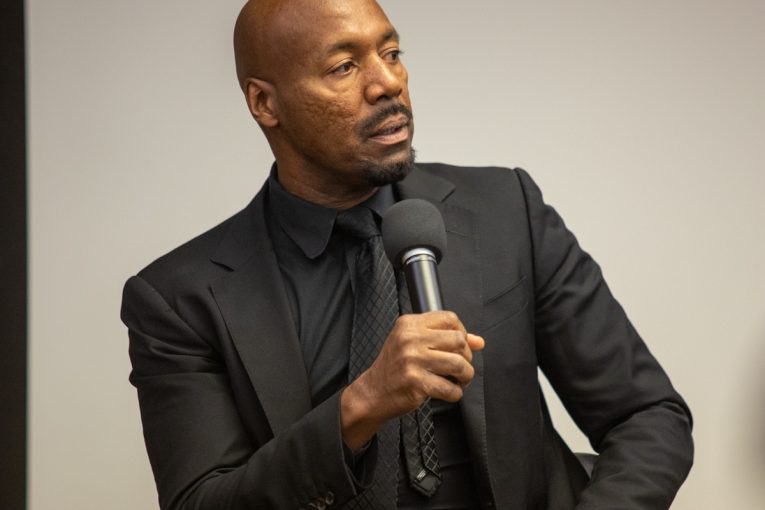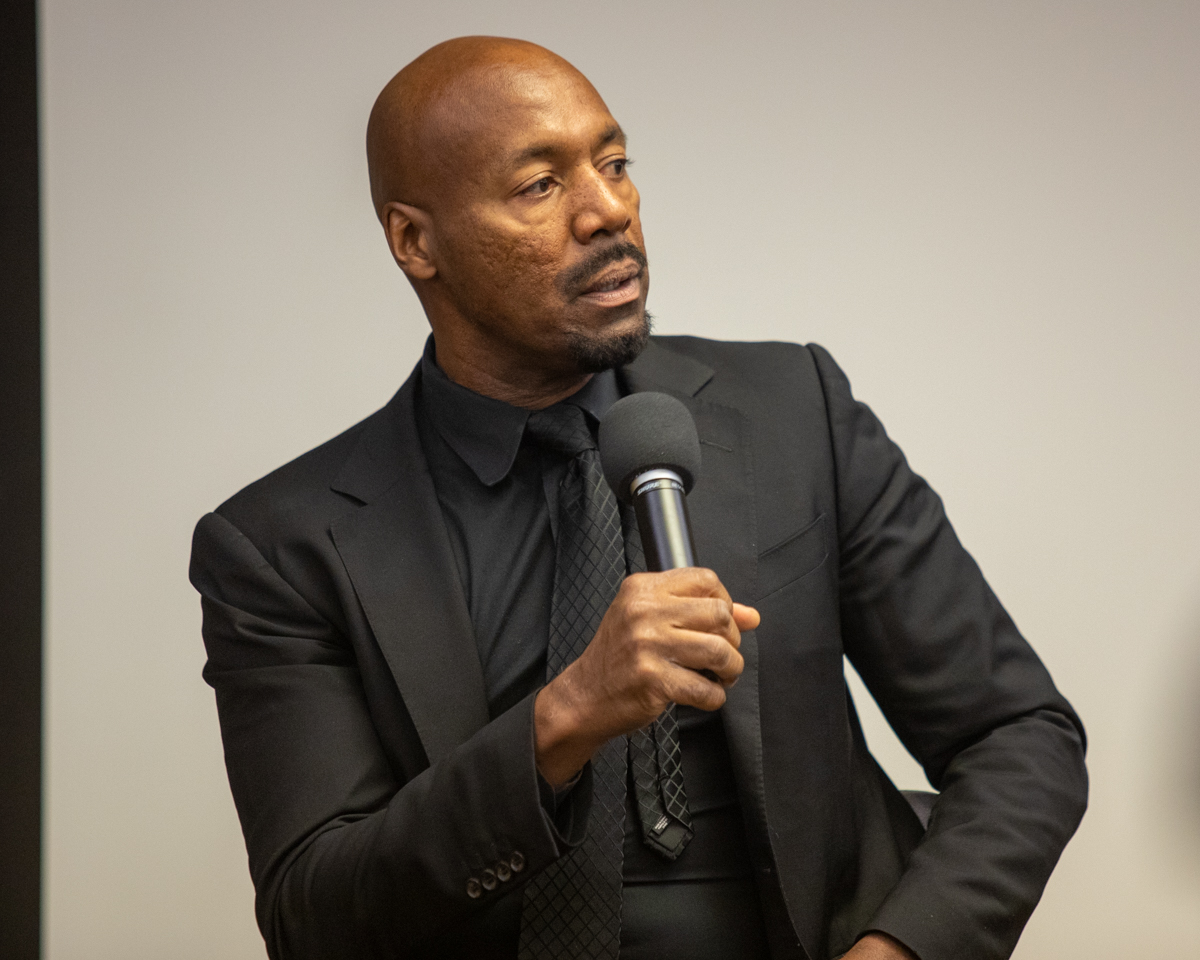

By Angelina Caplanis
NEW YORK – A panel here this week hosted by the Institute for Innovation in Prosecution at John Jay College – spearheaded by Bay Area public defenders and San Francisco District Attorney – discussed the issue of mass incarceration and reform during nationwide protests against police brutality and systemic racism in the midst of the pandemic.
Santa Clara Deputy Public Defender Sajid A. Khan’s June 3 blog post, “Be Mad at Police, But Also at the Prosecutors Who Protect and Enable Their Abuses,” gained the support of 650 public defenders nationwide after Santa Clara District Attorney Jeff Rosen filed a whistleblower complaint against Khan (which was later withdrawn).
The panelists did not shy away from openly discussing mass incarceration and the prosecutor’s role in perpetuating a racist system.
“Our system of mass incarceration actually makes us less safe,” said San Francisco District Attorney Chesa Boudin. “It fails to prevent crime; it ignores the real needs of victims that all too often go unmet in our current approach. And it destroys families and communities at a tremendously high economic and social cost.”
Boudin, a former public defender, was elected in 2019 on a platform focused on ending mass incarceration. Boudin fulfilled one of his campaign promises in January by ending the cash bail system in San Francisco, which primarily affects indigent and Black residents.
“It has become ever more evident that this system is doing what it is designed to do, which is to incarcerate, but not to truly seek justice,” Commonwealth’s Attorney Stephanie Morales said. In 2015, Morales became the first woman elected in Portsmouth, Va., with a campaign focused on reducing the number of people sent to jail and assisting those reentering the community.
According to Morales, prosecutors have a responsibility to recognize the accused as a part of our community. “It’s not a case, it’s not a file, it’s a person,” Morales said. “It’s somebody’s child, it’s someone’s parent. We have to do right by those members of the community who come before us accused of crimes.”
it’s someone’s parent. We have to do right by those members of the community who come before us accused of crimes.”
For Chittenden County State’s Attorney Sarah George, the pandemic has made the issue of mass incarceration even more prominent.
Before the COVID-19 threat required George’s office to decrease jail populations in Burlington, Vermont, she said they believed we were bringing less people into the court system and allowing for more restorative justice.
“But when the pandemic hit and we were all tasked with going through every one of our cases and determining whether or not it was truly a priority, we ended up dismissing over 300 cases,” George said.
Prosecutors’ offices and jails around the country have been similarly charged with decreasing their jail populations in order to mitigate the spread of COVID-19. Many offices have implemented zero bail policies for low-level felonies and misdemeanor offenses as well.
In San Francisco, the jail population was reduced by 45 percent. In doing so, Boudin said his office “realized there were a lot of people in our jail who didn’t have to be there in the first place.”
One woman who was released from SF County Jail had a high risk pregnancy, no criminal record, and was in jail on a misdemeanor. “It was unconscionable that [she] was incarcerated in the first place,” Boudin said.
Both Boudin and Paul Butler, former federal prosecutor and current professor at Georgetown Law, noted that despite claims to the contrary, crime rates have not risen as a result of the recent effort to decarcerate.
For Morales, COVID-19 has highlighted the dysfunction between law enforcement, prosecutors, and the community.
“It became evident that as much as my office tries to be reform-minded . . . we have people who are incarcerated who are nonviolent. And that’s just really not okay,” Morales said. To reduce Portsmouth’s jail population, Morales partnered with the public defender on joint motions to argue for the release of individuals from jail.
“As a society, we have to figure out why we are incarcerating people . . . now because there is a public health pandemic, we can find the energy and the time and the arguments to bring before the court to release these very members of our community who we incarcerated for one reason or another, but that reason could not have been because of our safety,” Morales said.
George added that re-evaluating cases in light of COVID-19 provided “a good reminder for all of us that we do still have a habit of charging things because at the time we think it’s necessary, or we think it’s the right thing to do especially to connect people to services, but that is not the way we should be working with our community to connect people to services.”
The prosecutor’s “habit” of overcharging, in combination with over-policing, results in disproportionate arrests, charges, and convictions of people of color, predominantly Black people. National attention has led prosecutors to actively work to address these issues through new policies and case review.
In the aftermath of Amy Cooper making a false 911 call, George said her office began scrutinizing 911 calls and people’s initial interactions with police and dismissing cases if there was no corroborating evidence.
Additionally, after the murder of George Floyd, George’s office committed to pulling and reviewing every case with a Black defendant for evidence of racial bias, namely to determine whether “consistent decisions were made to comparative cases with white individuals.”
Boudin’s office committed to reviewing all body-worn camera footage before charging someone with resisting arrest or assaulting an officer. This is to ensure that police reports that seem legitimate on their face are not covering up police violence.
And, the SFDA made a public policy decision not to charge drug cases stemming from pretextual traffic stops in order to disincentivize racist policing.
Adding to this, Morales said prosecutors need to hold police accountable. “I know a lot of great prosecutors, but all of a sudden, [they] don’t know how to prosecute anymore when it comes to holding law enforcement accountable.”
Given the national discourse about racial justice and policing, moderator Lucy Lang asked Butler and Morales what it means to be a Black prosecutor.
As a federal prosecutor working at the Justice Department, Butler had written about the “irreconcilable challenges of being a Black man as a prosecutor.”
“I would say to African-Americans and Latinx prosecutors: either be the boss or work for a [progressive prosecutor],” Butler said. Otherwise, “you should quit.”
Morales had a slightly different take.
“I want every last Black and Brown prosecutor to hear me when I say you are needed,” Morales said. “People in our communities need you. They need people who will understand their plight, [and] will look at them and see a family member and not a miscreant.”
As of 2019, Black lawyers accounted for only 5 percent of the entire U.S. legal profession. Among prosecutors, that number is even smaller. Morales added that in a time when we cannot settle for incremental change, transformation will require leadership from prosecutors of color.
Looking forward to the “future of prosecution,” panelists reflected on the calls for police reform and abolition by protestors.
Butler argued that simply reforming police departments will not be enough to bring transformation in the criminal justice system, adding that many police departments already train officers on de-escalation and implicit bias.
“We didn’t talk about reforming slavery, we talked about abolishing it,” Butler said.
Some panelists agreed with the idea that the eventual goal is to eliminate the need for prosecution or police. Others emphasized immediate action over long term visions.
Overall, the consensus among panelists was that the prosecutor should be a public servant and advocate for marginalized communities that have been affected by issues caused by systemic inequality.
“A lot of prosecutors see themselves as working hand in hand with law enforcement, but you also need to be working hand in hand with the community,” Morales said.
To sign up for our new newsletter – Everyday Injustice – https://tinyurl.com/yyultcf9
